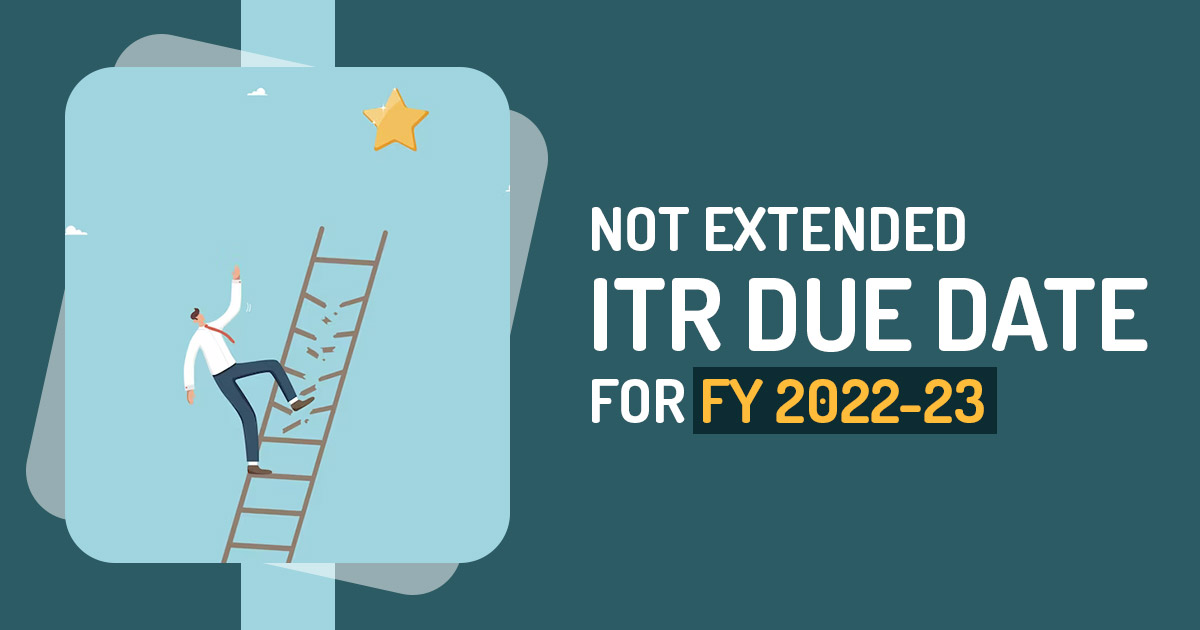
The deadline to file an ITR for the assessment year 2023-24 (FY 2022-23) was July 31, 2023. Despite requests for an extension, the government has not extended the deadline for filing ITRs. This is the second time the administration has failed to extend the deadline. Last year’s ITR filing deadline was likewise not extended.
The initial income tax return (ITR) filing date for the fiscal year 2022–23 (AY 2023–24) was July 31, 2023. The answer to your question is no, the income tax agency has not extended this date. The ITR filing deadline has not been extended by the income tax department.
The income tax department extended the ITR filing deadline for a number of reasons, but it did not offer any help to taxpayers who hadn’t submitted their ITR by July 31, 2023.
Here are a few explanations for why individuals requested a deadline extension for paying their taxes.
First, there have been several floods around the nation. Flooding is a problem in several states, including Uttarakhand, Himachal Pradesh, Telangana, and Maharashtra. The Central Board of Direct Taxes (CBDT) would have prolonged the last date in 2018 because of the flood-like conditions in Kerala.
Second, despite being online for two years, the new income tax portal still has bugs. Many taxpayers voiced their complaints about the website’s slowness, errors that occurred when confirming the ITR form, and other issues on Twitter on the final day to file an ITR. These taxpayers requested that the government postpone the deadline and eliminate the late filing fee.
Third, important TDS certifications, namely Form 16 (issued by the employer) and Form 16A (issued by banks, corporations, and mutual funds), must be issued by June 15. As a result, a paid worker typically has only 45 days to file his or her income tax return. However, banks, employers, and other deductors frequently fail to issue TDS certificates. Individuals’ ITR filing process is now much more slowed.
It is worth noting that the CBDT extended the deadline for filing TDS reports for workers and financial institutions by 15 days in 2017, from May 15 to May 31. This caused a 15-day delay in the issue of the TDS certificate. The government gave deductors extra time to file TDS returns, but ITR filers did not receive the same extension.
What are the Steps to Take After an ITR Deadline has Passed?
You should not be concerned if you missed the ITR filing date. You can still file your ITR, but you will have to pay a late filing cost of up to Rs 5,000. A belated Income tax return is an ITR submitted after the deadline has passed. This ITR is being filed in accordance with Section 139(4) of the Income Tax Act of 1961.
A penalty sum must first be deposited by someone who does not owe any taxes. Once the penalty has been paid, a person may submit a late ITR. Small taxpayers with taxable income up to Rs 5 lakh would be subject to a Rs 1,000 fine.
In addition to having to pay an income tax penalty, submitting a tax return late has several drawbacks. Losses cannot be carried over from a late return, with the exception of those involving real estate. If taxes are owed, the person is responsible for paying punitive interest in accordance with sections 234A, B, or C, as appropriate.